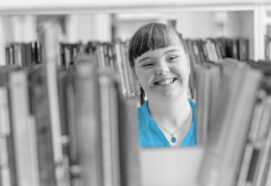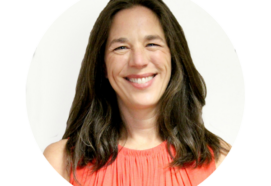One of the most positive experiences I have ever had was being part of the Childhood Disability Research Priority Setting Partnership through the British Academy of Childhood Disability, the James Lind Alliance and others. You can read more about this here: http://www.bacdis.org.uk/research/psp.htm
Another was being part of the team of people who developed the national data set for children and young people with disabilities, including learning disability and autism, as part of the Community Services Data Set. Without data and knowing what needs there are, it is not possible to commission well for this group. More can be read about this here: https://www.bacdis.org.uk/policy/dataset.htm
Recent publications about research have caused me to reflect on why research matters to children and young people and adults with learning disabilities, autism or both and their families. These have included:
- NHS England’s consultation to simplify research in the NHS: https://www.england.nhs.uk/2017/12/nhs-england-launches-consultation-to-simplify-and-strengthen-arrangements-for-research-in-the-nhs/
- Department of Health’s framework for mental health research: https://www.gov.uk/government/publications/a-framework-for-mental-health-research
According to NHS England:
“Research is vital in providing the evidence we need to transform services and improve outcomes e.g. in developing new care models, redesigning urgent and emergency care, strengthening primary care and transforming mental health and cancer services.
By fully integrating research into our organisation we can outperform organisations that do not, leading to better quality care and improved use of resources.
Pursuing the use of evidence and evaluation will improve how we measure the impact of our work, meaning we can learn from what works well, and what doesn’t. We wish to foster a culture in the NHS that seeks out research evidence and applies this evidence in decision-making. All of this will be underpinned by a strong infrastructure that is supportive of research and evaluation.” https://www.england.nhs.uk/commissioning/research/
This matters because national and local decisions about service commissioning, development and investment can be influenced positively by research evidence (and negatively by lack of it), especially when funding is tight.
Families and decision makers can also have different perspectives of evidence: families see what works practically (experiential) while decision makers/gate keepers can insist on “empirical evidence”.
I have seen first hand how this leads to lack of understanding of children and young people like my son (who eventually got a diagnosis of autism and severe learning disability) and impacts on the availability of services that are needed to support them from the earliest years. Although my son was born with these needs, he did not benefit from early identification or early interventions. No one told me he would not sleep and I did not know to seek help until some was offered through a sleep trial many years later. A private speech and language with autism expertise told me when my son was about 3-4 years old that he had receptive and expressive language disorders and virtually no means of communication. I struggled to support him through Special Educational Needs Tribunals to get basic things like speech and language therapy. I had to buy his PECS materials and pay for a Makaton course for myself. I also had to beg for help with his eating issues and was fortunate to get support from a specialist service over a number of years recognising that these issues are complex and not easy to fix.
A limited understanding of and interest in sensory processing issues, which were apparent from a very young age, left me struggling when my son became very agitated and at times violent, forcing me to find the answers myself and then fight for that to be recognised and help provided, including having to go to the (then) Local Government Ombudsman. This lack of understanding of these sensory issues and his problems with transitioning (which were not recognised by anyone but me) led to the collapse of his secondary school placement in a special school and he was unwell at home for months, refusing to leave the house, leading to the need for him to go to a residential special school. There is virtually no understanding of why transitioning is such a problem and anxiety becomes so great for our young people.
I need to advocate for everyone to be aspirational for what my son can achieve with his life, and at the same time help ensure that all his needs are recognised and understood so that he is not put in situations where he would be become very unhappy.
Despite what law and policy says about working in coproduction with people and families there is not a lot of understanding of how to do this well, both at an individual and strategic level. There is also a broad lack of understanding about autism and learning disability with other comorbid conditions in society and among many practitioners in education, health and social care. At one stage I was told he had emotional lability but I did not understand how that related to his other needs. Many people do not fully understand the presentation. When sensory interventions support my son to be in a calm and alert state, I have been asked if he is medicated, as when he is not in a calm alert state he is very different. There are also other things that make him unique like being sensitive to small spaces, not liking loud voices or knowing when people do not like or are scared of him. Those are really important to him but they are hidden except from those who know him very, very well. That’s why I was delighted we could make a start to answering some of these questions through the Childhood Disability Research Priority Setting Partnership, but there remains so much more to be done.
Against this background, I have a series of questions:
- To what extent are families, children and adults with learning disability or autism or both influencing national and other research agendas?
- Why are ID-CAHMHS and child intellectual disability psychiatry relying on extrapolating evidence about treatments from adult studies, or from neurotypical research?
- What are the arrangements for dialogue with the research community, families, children young people and adults themselves?
- Are knowledge gaps systematically identified and shared with the research community in all areas?
- Is there scope for research prioritisation exercises for any other groups of children and young people (e.g. where questions are not covered by those identified through the prioritisation exercises for neurodisability and autism)?
- What research gaps might exist within Public Health (national and locally) that could impact on gaps in local decision making, and thereby impact negatively on experiences and services for people and families?
- What is the scope of NIHR funding, and are there other research bodies that will be interested in other aspects of research of interest to and importance to families and people themselves (e.g. education and social care, joint commissioning, whole life issues)? Are research questions being missed because this is unclear?
NHS England’s Children and Young People’s Transforming Care Team, led by Sue North, working with national partners, the Council for Disabled Children and Challenging Behaviour Foundation, leading researchers in these fields and practitioners, including Mark Lovell, are seeking to address these issues for children and young people with a learning disability, autism or both. A recent research and evidence day recommended inter alia the need for an NIHR commissioned call on learning disability and autism, as there has been for dementia; a framework to help Identify interventions and disseminate evidence to inform strategy and policy development nationally, regionally and locally; and thinking about links to NICE and CPD for practitioners across education, health and social care. As part of taking this work forward NHS England held a learning and evidence day with Transforming Care Partnership leads for Children and Young People in September 2018 to share best practice and some of what the evidence tells us. More events are planned.
In conclusion, we need to do more to create sustainable means for a dialogue about research priorities and questions for this group of people and their families. We need that research to be funded. We also need to know more about existing research and working out how best to share that nationally, regionally and locally to make a difference for families and people themselves in their daily lives. I am looking forward to being part of making this happen, working with colleagues in NHS England and with other partners.
This is an independent article and the views are not necessarily those of ACAMH.




Discussion
I do feel more research needs to be carried out for diagnosing autism especially trimming teachers . As a parent I struggled with my daughter from birth and recognised that she was different from my other children and had a very flat face and did not understand emotion. When she went to reception I kept on asking her teacher does she see anything different she kept on saying daughter is normal and intelligent as she made me feel that I was going crazy in the head till my GP stepped in and got my daughter referred to a paediatric specialist and then they diagnosed her with autism and the school itself was shocked as they thought that she was just a normal child As she did not show the common signs of having autism even though I kept on telling them that research has shown that girls can mask them self them self more than boys and keept on saying to them that those with disability are not necessarily be dumb They can also be intelligent and have autism. In education I feel that teachers need to have more knowledge of autism and other disabilities so the fact that all needs for children can be met and so that they can also have a chance to achieve in their education like their peers.